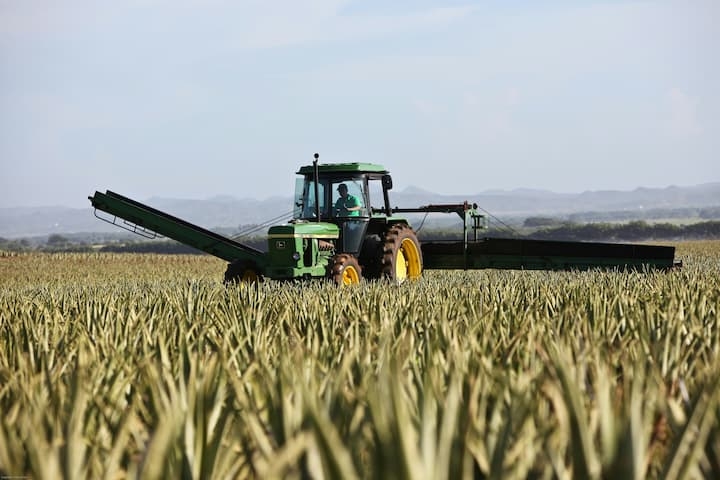Crop health is the cornerstone of successful agriculture, ensuring abundant harvests and sustainable farming practices. With the growing need for effective pest management, tools like Emamectin Benzoate 5% SG have become essential for farmers worldwide. This insecticide, known for its targeted efficacy, plays a vital role in safeguarding crops against destructive pests while supporting environmentally conscious farming. Let’s delve into how a comprehensive crop health plan integrates Emamectin Benzoate to achieve both productivity and sustainability.
The Role of Emamectin Benzoate in Pest Management
Effective pest control is central to crop health management. Pests such as caterpillars and other leaf-feeding insects can cause significant damage to plants, leading to reduced yields and compromised quality. Emamectin Benzoate 5% SG is specifically designed to target these pests with precision, ensuring that crops remain unharmed while pests are eliminated.
Unlike traditional insecticides, which often affect a wide range of non-target organisms, Emamectin Benzoate works by disrupting the nervous system of specific pests. This targeted action minimizes harm to beneficial insects, such as pollinators, making it a valuable tool in both conventional and organic farming.
One notable product in this category is Emoctan - Emamectin Benzoate 5% SG. Farmers have found it particularly effective in combating pests that are resistant to older pesticides. Highly effective against pests like caterpillars, thrips, and leaf miners.
- Environmentally conscious, with minimal residual impact on soil and water.
Developing a Comprehensive Crop Health Plan
A holistic crop health plan goes beyond pest control to include prevention, monitoring, and maintenance. By combining advanced insecticides with sustainable practices, farmers can achieve long-term crop productivity.
1. Prevention through Proper Crop Management
Prevention is the first step in managing crop health. Healthy crops are naturally more resistant to pests and diseases. Proper soil preparation, crop rotation, and the use of disease-resistant plant varieties form the foundation of a strong crop health strategy.
In addition, maintaining plant diversity and encouraging natural predators can significantly reduce pest populations. By creating an environment where beneficial insects thrive, farmers can complement the use of Emamectin Benzoate 5% SG for more effective pest control.
2. Monitoring Pest Populations
Regular monitoring of pest activity is crucial for timely intervention. Using tools like pest traps and conducting field inspections allows farmers to identify infestations early. By understanding pest behaviour and life cycles, applications of Emamectin Benzoate can be timed for maximum impact.
Recent agricultural studies show that farms using a proactive approach to pest monitoring experience a 30% reduction in pesticide use, leading to cost savings and better crop outcomes.
The Environmental Edge of Modern Insecticides
Emamectin Benzoate 5% SG stands out for its environmentally friendly formulation. As farmers adopt more sustainable practices, the demand for insecticides with minimal ecological impact has grown.
This insecticide breaks down quickly in the environment, reducing the risk of soil and water contamination. Its selective action ensures that non-target species, including bees and other pollinators, remain unaffected. This is especially important in organic farming, where preserving biodiversity is a top priority.
"The soil is the great connector of our lives, the source and destination of all." – Wendell Berry
By integrating Emamectin Benzoate into their pest management plans, farmers contribute to a healthier ecosystem while protecting their crops from destructive pests.
Supporting Organic Farming Practices
Organic farming emphasizes natural solutions and minimal chemical intervention. While Emamectin Benzoate is not a natural product, its compatibility with organic principles lies in its precision and reduced environmental footprint.
When used judiciously, this insecticide can be part of an Integrated Pest Management (IPM) system that prioritizes biological control methods. For example, introducing natural predators like ladybugs or parasitic wasps alongside targeted applications of Emamectin Benzoate creates a balanced pest management strategy.
Farmers who adopt this hybrid approach can maintain the integrity of their organic certification while ensuring that their crops remain protected from harmful infestations.
Economic Benefits of Effective Crop Health Management
Beyond its environmental and agronomic advantages, Emamectin Benzoate offers significant economic benefits. Pest damage accounts for billions of dollars in global crop losses each year, making effective pest control a crucial aspect of farm profitability.
Using Emamectin Benzoate 5% SG allows farmers to reduce pest-related crop losses by up to 40%. This not only improves yield quantity but also enhances quality, leading to better market prices. Additionally, its long-lasting effects mean fewer applications, reducing labour and input costs.
When integrated into a comprehensive crop health plan, this insecticide supports farmers in optimizing their resources while achieving superior agricultural outcomes.
Integrating Technology for Smarter Farming
Modern technology plays a vital role in enhancing crop health management. Tools such as drone-based spraying systems, satellite imaging, and digital pest monitoring platforms allow farmers to apply Emamectin Benzoate with greater precision.
For example, drones equipped with sensors can detect areas of pest activity and guide targeted insecticide applications. This reduces waste, ensures even coverage, and minimizes the impact on surrounding environments.
Farmers who embrace these advancements benefit from more efficient pest control and improved crop health, positioning themselves at the forefront of sustainable agriculture.
Shaping the Future of Crop Health Management
The integration of advanced tools like Emamectin Benzoate 5% SG into farming practices represents a significant step forward in agriculture. By prioritizing prevention, monitoring, and precision application, farmers can create robust crop health strategies that support both productivity and sustainability.
As the global demand for food continues to rise, these innovations will play a critical role in shaping the future of farming. By embracing comprehensive crop health plans, farmers can navigate the challenges of modern agriculture with confidence and resilience.
